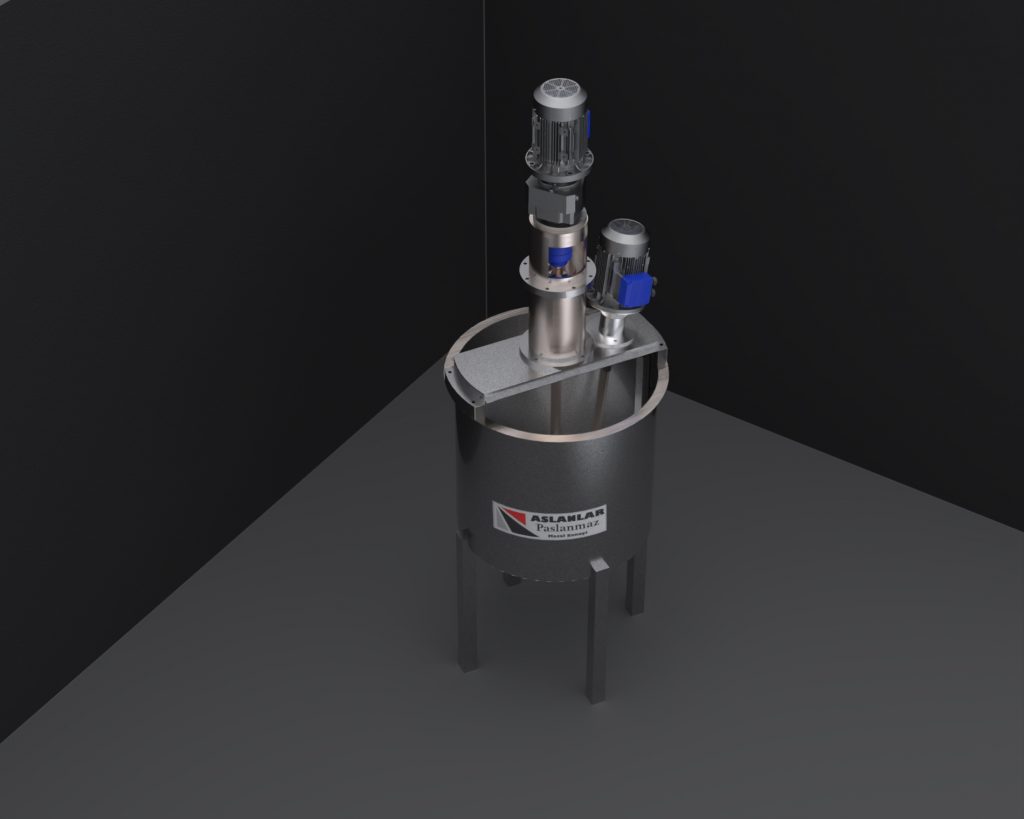Stainless Steel Mixer Technical Specifications define the essential features that make these mixers durable, hygienic, and efficient for industrial applications. Built from high-quality stainless steel, they ensure corrosion resistance, easy cleaning, and long service life. Stainless Steel Mixer Technical Specifications typically include details such as capacity, motor power, mixing speed, blade type, and compliance with industry hygiene standards, making them suitable for food, beverage, pharmaceutical, and chemical industries.
The quality of the equipment used in industrial production processes directly determines the efficiency and reliability of the product. One of these equipment is stainless steel mixer models. Correct stainless steel mixer technical specifications A device with this technology reduces production costs and provides the advantage of long-lasting use.
What is a Stainless Steel Mixer?
Stainless steel mixers are industrial equipment that enable homogeneous mixing of liquid, semi-liquid and high viscosity products.304 and 316 grade stainless steel Manufactured from materials that offer superior corrosion resistance, they are the most preferred mixer type for hygienic production, especially in the food, pharmaceutical, chemical, and cosmetics industries.
Stainless Steel Mixer Technical Specifications
1. Material Quality
The most critical feature of a stainless steel mixer is the material used.304 quality stainless steel, while ideal for general use; 316 quality stainless steel It is preferred in environments requiring acidic and high chemical resistance. This feature maintains the durability and hygiene of the device in the long term.
2. Engine Power and Speed Control
Motor power should be selected based on the density of the product being mixed. Models with stronger motors are suitable for more difficult mixtures.inverter-assisted speed control provides flexibility in the production process by offering the opportunity to work at different speeds.
3. Mixing Wing Structure
The blade type directly affects the mixing quality of the product.
Propeller Wings: Ideal for low viscosity products.
Anchor Wings: Preferred in high density mixtures.
Paddle Wings: It gives the most efficient results in medium density liquids.
4. Hygienic Design
Mixers used especially in the food and pharmaceutical industries CIP (Cleaning in Place) It must be compatible with the system. The smooth processing of welded areas and the surface quality that prevents bacteria from adhering play a major role in ensuring hygiene standards.
5. Security and Certificates
A stainless steel mixer is a must CE, ISO and FDA These documents demonstrate that the device complies with international quality standards. They are also crucial for occupational safety.
What to Consider When Choosing a Stainless Steel Mixer?
Choosing the right mixer isn’t just about technical specifications. Area of use, production capacity, energy consumption, and ease of maintenance should also be considered. This is especially true in facilities with continuous production.energy-saving motors ve easy-to-clean design sshould be preferred.
Areas of Use of Stainless Steel Mixers
Stainless steel mixers have a wide range of uses:
Food Industry: Milk, yogurt, fruit juice, sauces and oil mixtures.
Pharmaceutical Industry: Syrup, cream and liquid formulas.
Chemical Industry: Paint, detergent and solvent-based products.
Cosmetics Industry: Shampoo, cream and lotion production.
Why Asinoks Stainless Mixers?
Asinoks, with its long years of experience, has high quality standards. stainless steel mixer Our products are;
Hygienic designs,
Powerful engine options,
Energy-saving structure,
It stands out with its compliance with international certificates.
Conclusion
TRUE stainless steel mixer technical specifications A product with this technology increases your business’s production capacity, reduces energy costs, and offers long-term investment advantages. Stainless steel mixers, manufactured with the Asinoks guarantee, offer the best solutions in terms of both hygiene and durability.
In conclusion, Stainless Steel Mixer Technical Specifications provide a clear understanding of the performance, safety, and reliability these mixers deliver. By focusing on durability, hygiene, and process efficiency, Stainless Steel Mixer Technical Specifications help businesses choose the right solution for consistent product quality and long-term operational success.
Click here for detailed information on Stainless Steel Mixing Tanks


